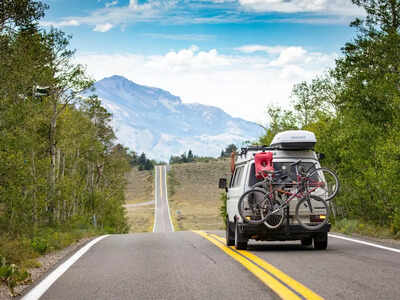While one is travelling, they are often more eager to explore new places, cultures, and experiences, but in the need to explore anything and everything, health gets left behind and we get sick on the trip. To avoid such situations, which turn into a mood spoiler, it is important to adopt certain habits to ensure that you stay fit while travelling.Stay Hydrated

One should properly hydrate their body while travelling, as flights or journeys can easily dehydrate you because of increased physical activity. It is very important to drink clean and safe water to maintain the fluid balance in your body. Avoid caffeine and alcohol as they greatly contribute to dehydration while travelling.Be Careful with Food and Water

It is important to make sure that the food you consume is fit for consumption and is not contaminated with bacteria or viruses, as it can lead to foodborne diseases. Prefer freshly cooked meals and avoid raw or undercooked items, especially from street vendors in areas with poor hygiene. Drinking bottled water is also a must.Get Enough Rest

While travelling, our usual routine often gets affected. It is important to sleep for proper hours and with a calm mind, as it is critical for our immune function, mental alertness, and physical recovery. Prioritize getting enough rest through a proper sleep schedule and take short naps as well if needed.Carry MedicationsThe most important thing to carry while travelling is a medical kit that will help you address minor ailments or injuries. One should keep general medications such as pain relievers, fever reducers, antacids, anti-diarrheal drugs, motion sickness pills, and any personal prescriptions, as well as keep hand sanitizer, antiseptic wipes, and bandages to manage cuts or scrapes promptly.Dress According to the Weather

While looking our best is important too, it does not mean not prioritizing your health. Dress appropriately according to the weather to prevent climate-based illness. Wear light clothes in hot weather and layer properly when in rain-prone or cold areas. Use insect repellent in areas prone to mosquito-borne diseases to prevent bites and infections.Avoid Close Contact with Sick PeopleDo not come in close contact with people with any kind of illness, as it could spread to you through coughs, sneezes, or close conversations. It is important to maintain a safe distance from individuals showing any symptoms of illness. In crowded places like airports or public transport, wearing masks may provide additional protection.Practice Respiratory Etiquette

One should definitely follow basic etiquette like covering your mouth while sneezing or coughing to prevent spreading infectious droplets. Practicing this etiquette protects others and helps reduce the overall transmission of respiratory infections in public settings.Stay ActiveIt is important that one keeps moving and avoids sitting for longer periods, as it reduces blood circulation and increases the risk of muscle stiffness. One should walk and stretch their legs periodically to stimulate blood flow and reduce discomfort.











